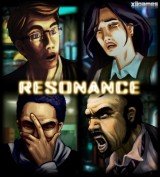Review for Agatha Christie - Murder on the Orient Express
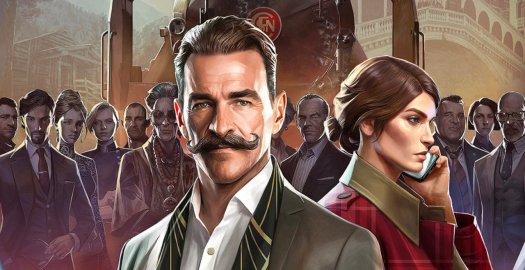
It feels like vintage murder mysteries inevitably get reimagined for a contemporary setting. Sherlock Holmes, for instance, made his current-day debut with BBC’s Sherlock and CBS’ Elementary. The latest Hercule Poirot game, Murder on the Orient Express, has decided to dip its toes into this trend to renovate the renowned classic by Agatha Christie. The result is a game that integrates the modern-day aspects surprisingly well, even introducing surprising plot twists not seen in the original book or the various movie/TV interpretations.
Published and developed by Microids and Studio Lyon, Agatha Christie – Murder on the Orient Express puts you in the shoes of the famous detective, who is expecting a bit of downtime after some business in Istanbul. While traveling on the Orient Express with his friend, Bouc, a man is killed, and all the passengers and staff aboard are suspects. However, as Hercule Poirot investigates, he finds that the murder victim and the motives for his murder are not as simple as they first seem.
That said, much of your reaction to the story will depend on whether or not you have read the original novel or seen the various interpretations of it in movies or on TV. If you haven’t, you’ll enjoy dissecting every suspect, alibi, and clue for the first time. However, if you have, you will encounter fewer surprises. Still, there are a couple of significant twists that do change the narrative. The first novelty is the secondary protagonist, Joanna Locke, primarily played through flashbacks to provide more context to the murder thriller. The second plot twist extends the mystery for another hour or two and provides some new puzzles to solve (more on those later).
What really sets this adaptation apart from others is its modernization. When first entering, it is not immediately apparent that the game is in a contemporary setting. This mainly becomes apparent through the use of modern tech like cell phones, computers, printers, and laptops. However, these are not elaborated on and do not outright solve the investigation by providing easy solutions. In fact, there are moments when newer technology is useless or misleading. At times, the Orient Express’s history is mentioned, particularly the 1930s, reminding you that events are unfolding in a later timeline.
The music, however, is somewhat reminiscent of a 1930s aesthetic, recalling Poirot’s original foundations. Most of the levels’ themes have subtle but fast-paced jazz tunes. There are a couple of outliers, especially in part of the final act, which features more of a festive Italian theme.
The voice acting is fairly good, including the accents, but the writing for each character is what stands out. For example, Hercule Poirot always describes situations with extraordinary detail, being as gentlemanly as possible while not afraid to become confrontational. He also has a bit of an ego, shown when solving a puzzle or exploring an idea. He acts as Poirot should. Joanna Locke, the secondary protagonist, is a suitable partner for Poirot. She is a lot more serious than he is, demonstrating determination and perseverance when she puts her mind to something. Every character’s line of dialogue brings out their different traits and personalities, which makes them easy to empathize with and remember.
What really helps the setting and characters is the fantastic and detailed presentation. The environments and people are rendered in an artistic, painterly style. The color palette is consistently bright and vibrant, whether in the patterned rugs or smooth wood walls of the train or the majestic mountains and snowfall outside. The detail extends to the character models, each exceptionally distinct. Not to mention the subtle features on their faces, such as wrinkles, creases, and even bags under their eyes when determining their age. The refined distinctiveness between characters helps identify them and serves a purpose in gameplay.
Speaking of which, the gameplay formula may be familiar to those who have played the recent Sherlock Holmes games developed by Frogwares. You find clues, observe dead bodies or details in the environments, question the various characters you meet and create profiles of them, and solve an assortment of puzzles. There is even a mind map where Poirot can take the ideas and possibilities formulated and translate them to further the investigation.
The ideas in the mind maps are puzzles themselves, usually asking you to move around pictures that construct crime scenes and timelines or reveal discrepancies in people’s statements. You can confront the characters and call them out for any fallacies in their remarks. This game rewards memorization, note-taking, and inspection, though it would have helped to have conversations more thoroughly logged in a journal or observations of the little details about characters in their profiles. Additions like those would have aided in recalling vital information. Finally, the game’s solutions are very linear. Even if you try to give the wrong explanations, the game immediately sets you on the right path. The only significant challenge to the mysteries are the achievements that ask you to deduce every answer correctly the first time.
Most of the puzzles are reasonably straightforward. They emphasize visuals, discerning the solutions based on pictures or colors within the puzzles. You must associate clues with the puzzle a few times, such as a notepad that holds the key to a password. The most challenging puzzles are found in the game’s last moments, when the difficulty spikes. There is a hint system that helps provide answers if you are stuck, but there is ONE puzzle where the hint system is not available, and I ended up looking at a video guide to figure it out. Still, the majority of puzzles are invigorating and have stimulating solutions.
There are collectibles in the game in the form of golden mustaches throughout the levels. The pause menu will say how many are in that level and how many you have found. Gathering all the collectibles doesn’t change anything in the game overall, but they can be fun to search for.
Placing an already established fictional character like Poirot into a modern setting can be challenging, especially when his original author wrote him to cater to specific eras and technology. In this case, Microids proficiently achieves this for Poirot and the story of Murder on the Orient Express. The developers have done a spectacular job at staying faithful to Agatha Christie’s story and adding twists that, personally, were surprising but welcome additions.




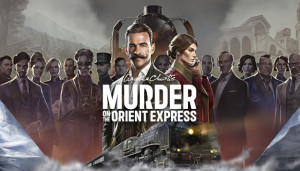
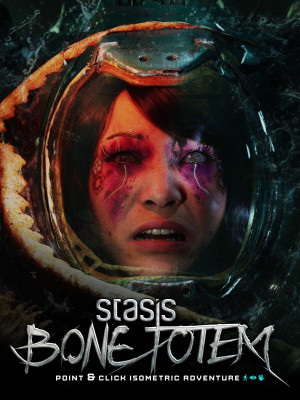




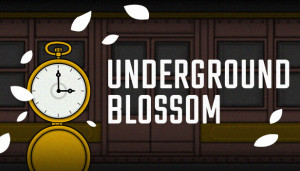
,_con_logo__medium.png)

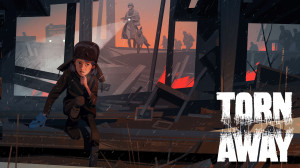




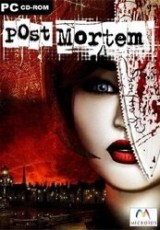

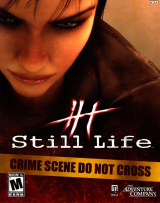





__small.jpg)

